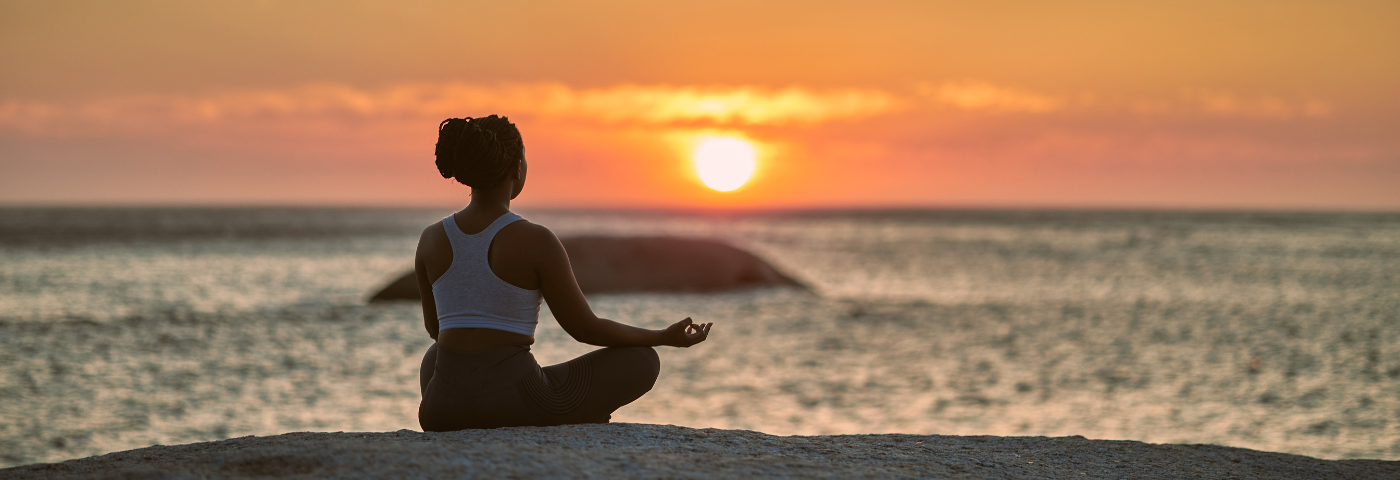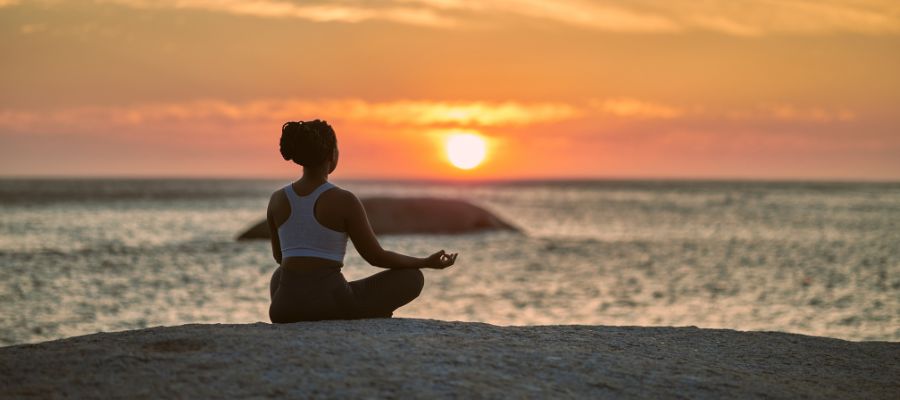I think that we can all agree that the biggest lesson here is one that we’ve often heard long before the pandemic: that health is indeed our greatest wealth.
Often, it is only when we’ve had a health scare that this lesson is valued. The not-so-great equalizer of our time, the COVID-19 pandemic, made everyone want to look after themselves a little better.
It’s hardly surprising then that health and wellness are among the industries that thrived during the pandemic, and continue to grow. A Vision Research Report valued the health and wellness market at US$ 4 trillion in 2020 and it is expected to reach US$ 6.75 trillion by 2030.
With this increased interest in health, travellers are seeking elements of wellness in their travels. An Accenture consumer survey done in September 2022 found that a third of 11,000 respondents want to put a focus on self-care than they did a year ago.
The survey also found that two in five (39%) high-income respondents have booked a luxury trip or wellness retreat for some time in the next 12 months. Among millennials, one in five (21%) booked to go away to a wellness retreat this year.
Wellness no longer an indulgence but an essential
“While the focus on personal well-being is not necessarily new, it is now less an indulgence and more of a non-negotiable essential for today’s consumers, even at a time when many are feeling financial pressures,” Emily Weiss, Accenture’s senior managing director said in a statement.
Weiss, who leads the company’s global travel industry practice, also stressed the opportunities this can open for travel companies.
“There is a huge opportunity here for travel and consumer-facing companies to tap into ecosystem partnerships and the local communities to offer differentiated experiences since wellness tourism today is about much more than the destination or activities — it is an extension of the values and lifestyle of the traveller,” Weiss added.
How travel brands offer wellness to customers
Wellness itself has different aspects, and every person’s wellness journey is different.
I spoke to different travel brands to see how this is incorporated today, and I can definitely say that post-pandemic wellness in travel goes beyond spa treatments, yoga and meditation.
Immunity Booster
COVID-19 mainly attacks the immune system, that is why the vitamins and supplement market for 2022 is expected to be more than $5 Billion higher than pre-pandemic projections from 2019.
RAKxa Wellness is a medical (and wellness) retreat located in Samut Prakan in Thailand, 40 minutes from Bangkok. The retreat place stresses the importance of strengthening the immune system.
“We have always been highlighting the importance of immunity since the beginning,” RAKxa’s director of marketing Ubonwan (Lynn) Khorthavornwong said.
Khorthavornwong shared: “During the pandemic we have seen the rising demand of immune boosting trips. In December 2020, we launched the ‘3-Night Immunity Booster programme’, combining advanced medical and alternative medicine treatments for optimum results.”
Khorthavornwong also shared that due to the change in the leisure and business travel landscape, some markets opt for a shorter stay, so RAKxa introduced a 2-night option for the Immunity Booster programme.
Under the Immunity Booster programme, guests will undergo a series of personally-tailored treatments designed to strengthen the body’s immune system.
The programme begins with a diagnostic overview, with medical lab tests and evidence-based physical assessments, resulting in a comprehensive proposed plan of action for each guest.
Khorthavornwong said that medical wellness is also on the rise as both mental and physical health conditions have become more complex due to the pandemic: “We have seen the trends of purposeful travelling in which health and wellbeing became top priorities for the majority of people.”
Treatments + Knowledge
Taking home knowledge about wellness is also as important as receiving a wellness treatment on site. A 2021 Skift survey (Engaging and Inspiring International Travellers in a New Era) revealed 32% of travellers expect to learn something new, and education / knowledge is a benefit they seek out on travels.
The Maldives is the second largest exporter of coconut shell in the world. The coconut palm is the island nation’s national tree, and for Villa Hotels and Resorts in the Maldives, the role of the coconut is more than ornamental.
Villa Hotels grows coconuts organically and sustainably in two of its resorts: at the South Ari Marine Protected Atoll (Sun Island Resort & Spa), where the resort produces 20,000 coconuts every month, and the UNESCO Biosphere Reserve of Baa Atoll (Royal Island Resort & Spa).
Villa Hotels uses products from its home-grown harvest for plenty of coconut-based treatments in its Araamu Spa so guests can receive the natural healing and anti-bacterial benefits of the tree, from roots, fruit, and leaves.
Villa Resorts is also about to launch a coconut craft workshop, where guests will be taught how to sustainably make use of every aspect of the coconut, along with every benefit of the coconut tree parts. Valuable knowledge and skill that can be taken home and eventually passed on to someone else make a better souvenir than a fridge magnet.
Mental Health
COVID-19’s impact on mental health worldwide is unquestionable, with the World Health Organisation (WHO) reporting that the pandemic had triggered a 25% increase in prevalence of anxiety and depression worldwide in the first year alone.
When you add the fact that the pandemic disrupted critical mental health services in 93% of countries worldwide, then the need for mental health as a wellness offering in travel becomes even more crucial.
The Farm at San Benito is an eco-luxury holistic medical wellness resort established in 2002 in the Philippines. Due to the list of life stresses getting longer brought by the pandemic, the resort has started to offer tailor-made, medically supervised mental wellness programmes ranging between 2-4 nights.
Treatments and sessions include:
- Brain biofeedback, where a machine scans the electromagnetic fields produced by neural cells and calculates possible perturbation in the energetic body.
- Psychosomatic voice analysis to identify specific stressors that affect one’s health through voice examination.
- Psychotherapy and psycho-emotional healing sessions.
Wellness in young people
The pandemic was also stressful for young people, not just adults. A study done by scientific and academic publisher Karger showed that the impact that the pandemic made on caregivers and parents affected children’s well-being.
According to the study, social isolation, combined with fear of contagion and quarantine, as well as with potential (mis)information overload, causes chronic stress and is associated with a higher risk of developing anxiety and depression among children.
In addition, the long months of lockdown and social isolation had children’s screen time soaring during the pandemic, drawing them further into the world of digital addiction.
Dan Chitila, manager and tour planner for Outdoor Activities in Romania, has started active tours for kids aged 9-13 since the COVID-19 pandemic.
“Our main goals are to keep the children on our tours away from their phones and gadgets as much as possible, connect them with nature, teach them about nature, and get them to appreciate it,” Chitila said.
Chitila offers 1 and 7-day nature tours for kids. Day tours include a 6-hour hike where children can improve and test their stamina, orientation skills and learn about nature. For kids who are signed up on week-long camps, activities include: going on various hikes, learning activities like zip lining, setting up a tent, and how to eat sufficiently in the wilderness, which is healthier and lesser than the modern child’s usual diet.
It’s easily a win-win for everybody’s wellness when children get digital detox while having fun and parents enjoy a day or week off parenting.
Wellness eating
Due to a renewed focus on personal health, most of us have changed eating habits, with many turning to vegetarian, vegan, or flexitarian diets.
It’s common for resorts and hotels to have vegetarian and vegan options in menus even before the pandemic, but a mandatory vegan option or an entire vegan menu is now on the rise.
How food is viewed overall has also changed. Prior to the pandemic, immunity-boosting beverages and supplements were the focus on healing the body, but now, food as medicine is being considered by many. It may be an emerging concept to some, but many cultures around the globe have been practising this for centuries.
Chiva-Som in Hua Hin, Thailand is one of Asia’s pioneering spa and wellness destinations. It was recently voted as ‘Top Destination Spa Resort in the World’ in Condé Nast Traveler’s 2021 Readers’ Choice Awards.
From October – November in 2022, the resort incorporated traditional Arabic and Islamic medicine in its menu.
In those two months, Chiva-Som used and also educated guests about the medicinal benefits of herbs and spices such as cinnamon, za’atar and turmeric, known to help improve heart health and for their anti-inflammatory properties, and the use of pulses such as lentils, an excellent source of plant-based protein and fibre.
The resort’s chefs also used different techniques in cooking. Desserts were not baked to ensure maximum nutrition is extracted from the ingredients and fruit such as dates were used to substitute refined sugars.
These are just some ways in which various travel brands are successfully offering value to its wellness-seeking customers. As wellness comes in different types, It’s important to know your market very well to figure out what it is they need.
As a whole, let the core definition of ‘Wellness tourism / travel’ be the guide: it is travel associated with the pursuit of maintaining or enhancing one’s personal wellbeing.
Post-pandemic, the goal is to have guests end their tour or stay with their wellness more enriched than when they started.








